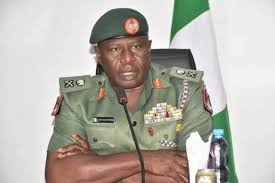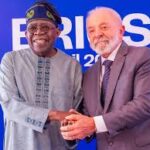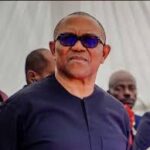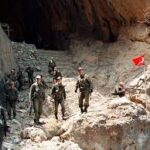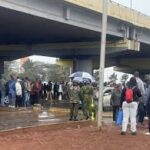Retired Brigadier General Sani Usman has welcomed the Federal Government’s proposed plan to involve military veterans in national security, describing it as a crucial step toward national development.
Speaking during an interview with ARISE News on Monday, the former Nigerian Army spokesperson said the initiative is both timely and necessary, adding that Nigeria has long failed to fully utilise the wealth of knowledge, training, and discipline its veterans possess.
“This is a timely initiative,” Usman said. “The Nigerian military is one of the most trained and experienced institutions. It’s important to harness that expertise, whether in active service or after retirement, to support national growth.”
Usman recalled that similar initiatives were proposed in the past, including the creation of a Veterans Affairs Department within the Ministry of Defence, to be led by a two-star general in partnership with civilian staff. However, he noted that such plans were never fully implemented. “I hope this will now be properly followed through so we can harmonise and maximise the potential of our veterans,” he added.
He emphasized that military service cannot be measured solely in material or financial terms. “These are individuals who voluntarily served on land, sea, or air. After disengagement, it is only right for the nation to tap into their experience, especially in these challenging times,” he said.
While acknowledging that many retired personnel already contribute in advisory or training roles, Usman said the value of veterans extends beyond combat. “It’s not just about carrying weapons. Veterans bring critical hindsight and strategic thinking that can help perfect the system,” he explained.
He called for better coordination between the proposed initiative and existing structures, referencing countries like Egypt, the UK, and the US as examples of best practice. “In Egypt, even families of fallen soldiers receive support. In the UK, there are residential facilities for veterans without family. Nigeria should adopt similar welfare models,” he said.
Addressing concerns that such involvement could lead to re-militarisation, Usman dismissed the fears as unfounded. “We’ve had uninterrupted democratic governance for 26 years. The military remains a defender of democracy, not a threat to it,” he said.
He added that fears based on examples like Russia are misplaced, noting that in several Nigerian states, veterans already play key roles in security outfits such as Amotekun and other vigilante groups. “These veterans provide leadership and training without undermining democratic structures,” he said.
On the issue of military justice and welfare, Usman responded to concerns raised by human rights lawyer Femi Falana (SAN) regarding 17 soldiers discharged under disciplinary conditions. He acknowledged the sensitivity of the matter but defended the military’s actions. “Punishment in the military is always a last resort. The 2015 incident involving soldiers who nearly attacked General Mohammed led to a court-martial and initial death sentences, which were later reduced to life imprisonment and eventually amnestied by the President,” he explained.
Usman said the ongoing dialogue between the military legal department and Falana was a welcome development aimed at resolving the matter amicably. He clarified that terms like “compulsory discharge” are technical legal expressions, noting that none of the affected soldiers applied for voluntary retirement.
Commenting on Nigeria’s reserve force structure, Usman said the country does have a provision for an “active reserve,” though it has not been fully activated. He explained that veterans can serve in various non-combat roles, including training, logistics, and advisory services. “Many of us are already contributing in those areas,” he added.
Usman also highlighted the enduring commitment of retired personnel, referencing the strong turnout at the recent Nigerian Army Day celebration in Kaduna. “Some even joked that the event should be held twice a year so we can reconnect more often,” he said.
He rejected the notion that Nigerians would hesitate to volunteer if the country faced an existential threat. “Recruitment exercises still attract overwhelming numbers. I remember when we needed 4,000 recruits, over 200,000 applications came in within 24 hours,” he said.
While stressing that Nigeria currently does not face threats requiring mass mobilisation, Usman concluded that both veterans and civilians remain willing and ready to defend the nation if needed. “There’s still a strong patriotic spirit among Nigerians. We are ready to serve,” he said.
